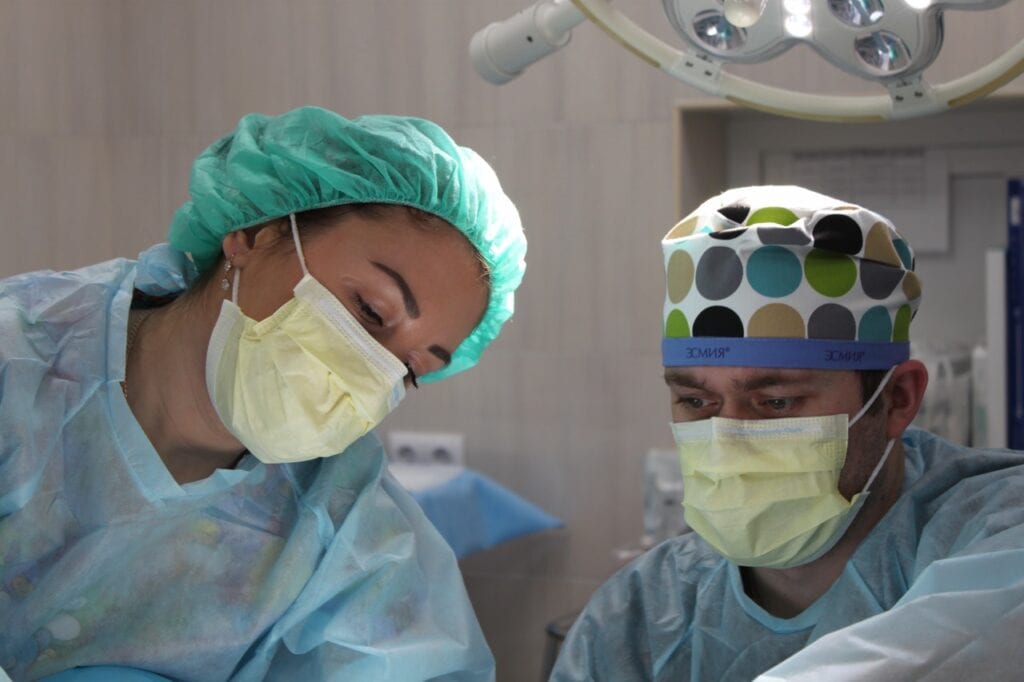What Happens if Surgery Goes Wrong?

No one undergoes a surgical procedure expecting to come out of it in worse shape than you were when you went into it, but it happens. It happens often enough that medical mistakes are the third highest cause of death in the United States. When surgery goes well, it can be a literal life-saver. But when it goes wrong, it can be deadly.
Everyone understands that all surgeries have inherent risks, but we also know that our surgeons have undergone rigorous training and have the experience to know what they’re doing. No one expects that the skilled surgeon they are trusting with their life might make a preventable mistake.
If you’re worried about surgical mistakes, keep reading to learn more about the most common surgical errors and who can be held responsible.
6 Common Surgical Mistakes
These are the five most common types of surgical errors. If you’re worried, talk to your surgeon about the steps they’ll take to prevent these mistakes from happening to you.
1. Surgery on the Wrong Side

Having surgery on the wrong side happens more often than you might think. According to one study, surgery on the wrong site happens 40 times a week in the United States. This is the most common type of surgical mistake, accounting for 59% of all cases. In one tragic case, doctors ‘amputated the wrong leg’ of an 89-year-old Nazi concentration camp survivor.
2. Surgery on the Wrong Patient
Surgery being performed on the wrong patient is not as common as wrong site surgery. This type of error accounts for only 5% of all surgical mistakes, but when it does happen, the results are devastating. In one recent case, a surgeon was accused of removing a kidney from the wrong patient.
3. Wrong Surgical Procedure
Being in the role of the patient involves a great degree of trust toward your doctor. Having any of the following errors occur in your case is certainly detrimental to that relationship and can be severely detrimental to your health as well. Especially if the wrong procedure is performed on you.
If this happens, the patient usually has to undergo a subsequent surgery, which was supposed to be the original one. Additionally, extra interventions may be required to mend any complications that the wrong procedure might have caused. Something like this might take a toll not only on someone’s physical but mental state as well.
4. Anesthesia Mistakes

Anesthesia mistakes are common, and these cases often end up in court. Some of the more common types of anesthesia errors include:
- Too much anesthesia
- Not enough anesthesia
- Delayed anesthesia
- Wrong type of anesthesia
- Failure to monitor during anesthesia
- Defective anesthesia equipment
- Failure to identify anesthesia allergies
- Waking up while under anesthesia
Anesthesia errors are one of the most terrifying types of surgical mistakes because they can be deadly and they can cause you to wake up and feel everything while you are paralyzed. This was the case when a five-year-old girl survived a “1-in-4 million” odds dental surgery mistake.
5. Foreign Objects Left in the Body
Foreign objects are left in the body during abdominal surgeries approximately 1,500 times per year in the United States. Surgeons can forget to remove clamps, scalpels, gauze, and pads. In one case, the jury awarded $10.5 million to a woman who had a surgical sponge left in her body, which eventually led to her having her leg amputated after years of pain.
6. Nerve Damage
Both surgery and anesthesia can cause nerve damage. One out of every 10,000 patients who experience nerve damage from anesthesia will have permanent damage. This type of surgical mistake can cause a lifetime of pain and disability. This is what happened when a woman was awarded $56 million for a botched spinal surgery that left her quadriplegic.
Why Do Surgical Mistakes Occur?

How can trained medical professionals commit such blatant mistakes, you wonder? Well, there can be many reasons, and it is usually safe to count out malintent.
-
Incompetence
One of the most common culprits is incompetence. Although they successfully finished their studies and have all the theoretical knowledge they need, they might lack the skills or practice to perform a particular procedure.
-
Fatigue
Fatigue is another pretty common source of surgical mistakes. Unfortunately, in this case, the blame mostly falls on the system. Doctors work long shifts during which they have to make many important decisions and perform procedures that affect other people’s life. It is indeed a very hard line of work that comes with great responsibility.
-
Bad Communication
Although there is a lead surgeon for each operation, a whole team is involved in the operation. Therefore communication is paramount. For an intervention to go smoothly, there must be great cooperation and communication between all of the people who are in the OR.
-
Inadequate Preparation
There is a lot of preparation that goes into surgery. Part of this refers to securing an OR, the right equipment, and staff, but the other part is about the patient. Doctors should have in-depth knowledge about their patient’s stats to make sure that everything is arranged to best fit their condition.
Furthermore, the medical staff can get ready for the intervention by reviewing procedures, looking into new findings published in accredited medical journals, consulting other experts, and taking steps to resolve any complication that might arise.
Who Is Responsible for Surgical Mistakes?

When a surgeon makes a mistake, it is the surgeon who will be held accountable in court. However, the surgeon may not be the only responsible party. Increasingly hospitals are turning to artificial intelligence to perform certain procedures.
AI has a lower risk of mistakes, but surgical errors are still possible. In these cases, it could be the surgeon, the medical institution, or the manufacturer who are held responsible. It could also be all three.
Medical Malpractice is responsible for 98,000 deaths every year in the US. Despite the risks of surgery, most people who go under the knife end up just fine. The majority of procedures will go smoothly. Chances are your procedure will turn out the way you hoped it would. Understanding what causes surgical errors will help you to improve your odds. Click here to learn more about medical malpractice and how a specialized lawyer can help you.




